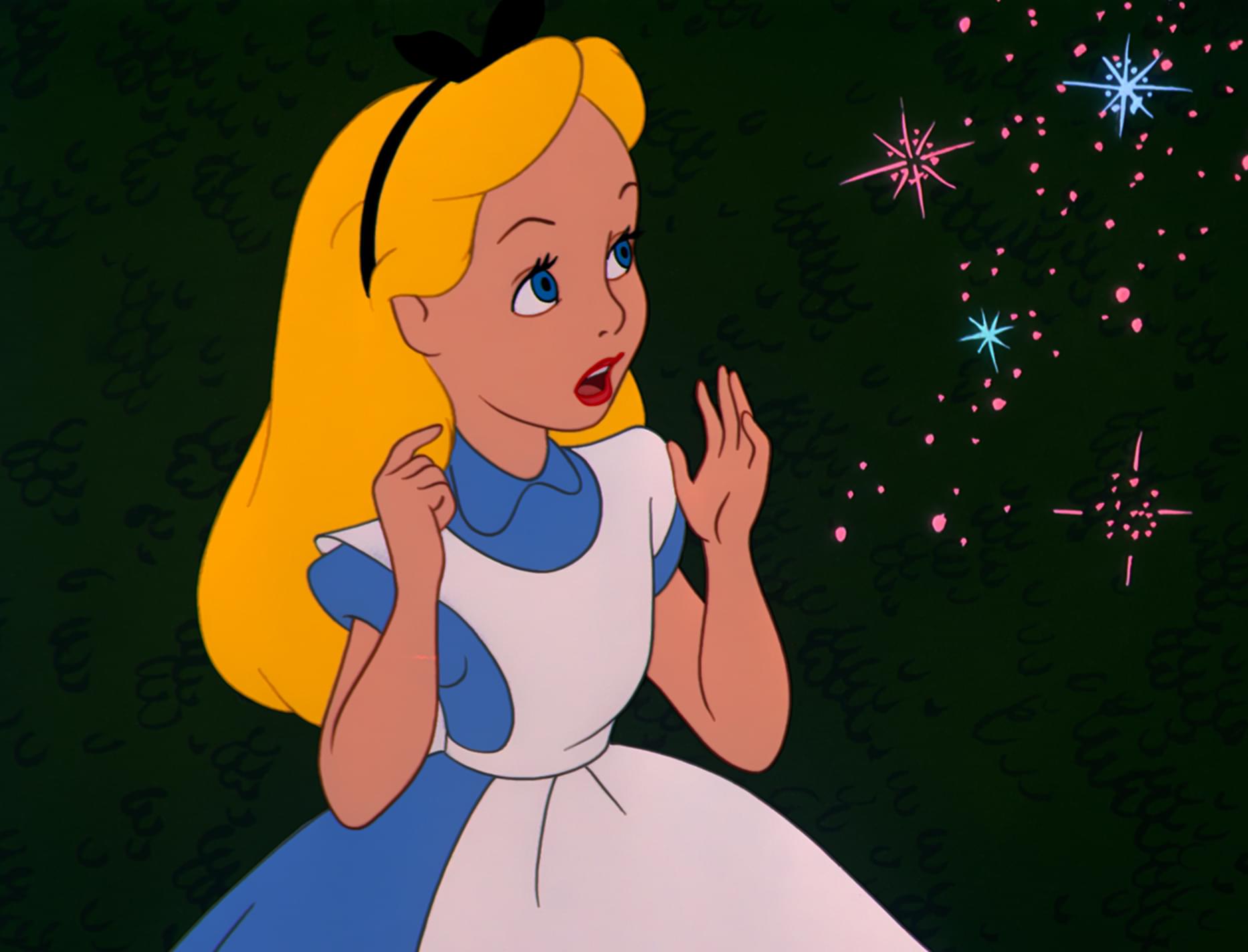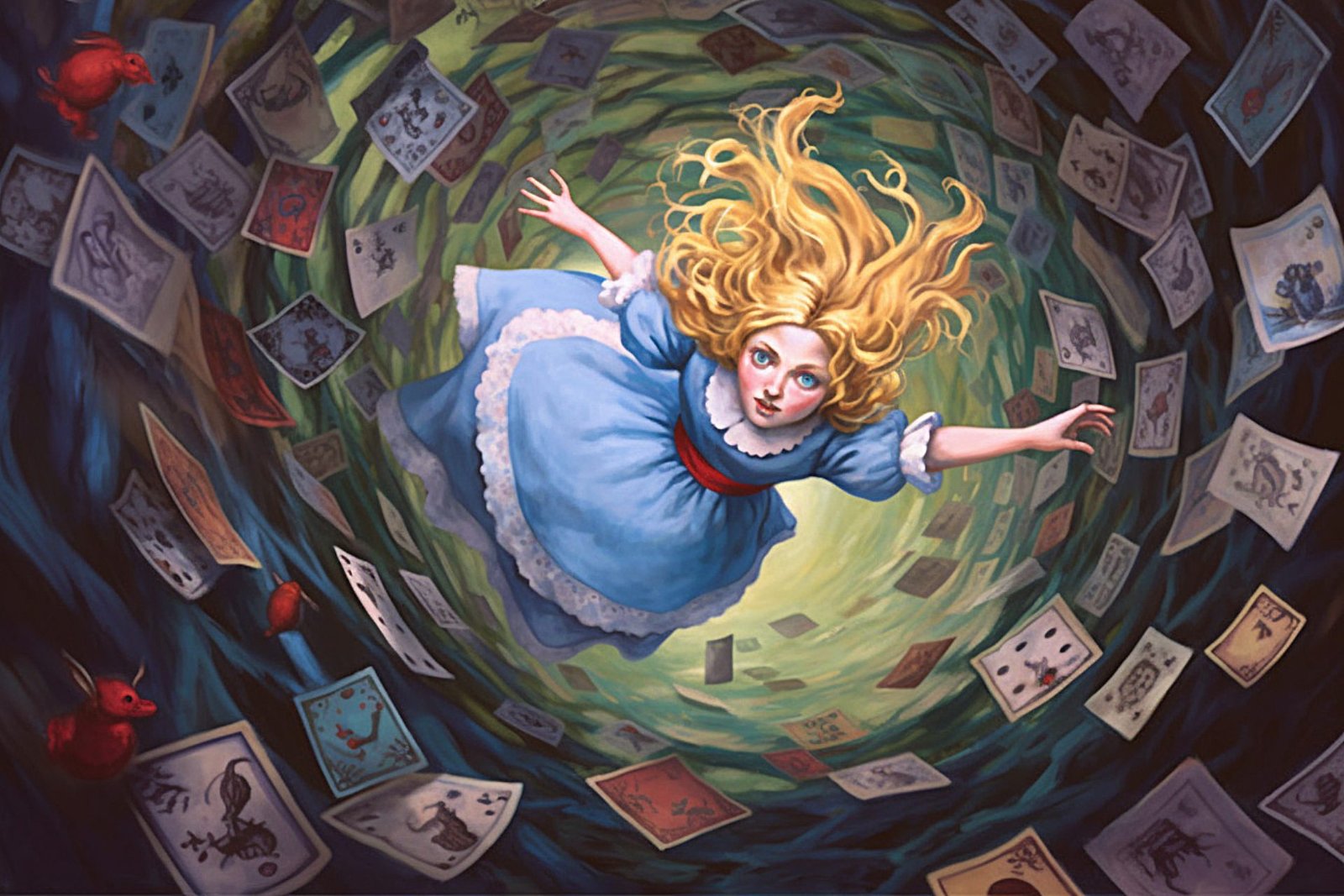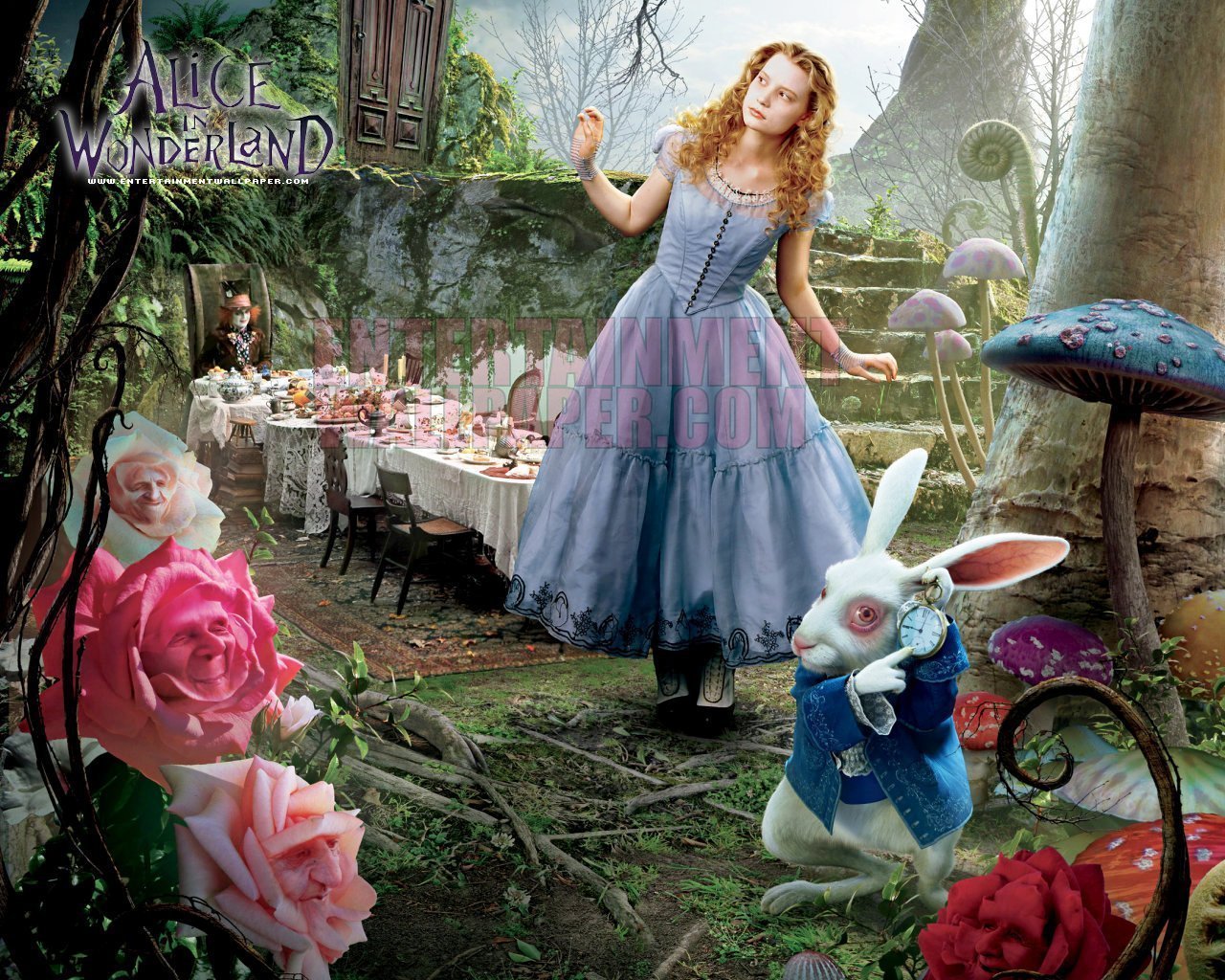When we think about people who make things for the internet, we often imagine a smooth path, full of likes and happy connections. However, for some, the journey can include unexpected bumps, especially when it comes to keeping their creations safe. This is, in a way, a situation that has come to light involving Alice Rosenblum, a person who creates content for online audiences. Her experience brings up some really important questions about how content is shared and who controls it once it's out there.
The situation with Alice Rosenblum of involves a legal action, a type of court proceeding, that she has started. It's a matter that touches upon the rights of people who put their work out into the digital space, particularly when that work is used in ways they did not approve. This kind of issue, you know, can really affect how creators feel about sharing their art and ideas with the wider world.
Her presence on platforms like TikTok and OnlyFans shows that she is someone who connects with a lot of people online. The legal challenge she is facing, or rather, initiating, highlights a very real concern for anyone who earns a living or simply expresses themselves through digital content. It's about, basically, making sure that what you make stays yours, or at least, that its use is something you agree to.
Table of Contents
- Alice Rosenblum – A Creator's Public Face
- What is the Public Presence of Alice Rosenblum of?
- The Core of the Legal Dispute
- How Did the Issues for Alice Rosenblum of Begin?
- Who is Named in the Legal Action of Alice Rosenblum of?
- Why Does This Matter for Creators?
- What Could This Mean for Alice Rosenblum of and Others?
- Looking Ahead for Digital Creators
Alice Rosenblum – A Creator's Public Face
When we talk about Alice Rosenblum, the information we have at hand tells us she is a person who has made a name for herself by creating content for online platforms. She is, as a matter of fact, known for her work as an OnlyFans creator, which suggests she produces material that is, in a way, often meant for a more adult audience. Her activities also include a presence on TikTok, where she connects with a broad group of people, garnering a rather substantial number of likes on her posts. This indicates she has, you know, built a considerable following, a community of people who enjoy what she shares.
It's important to remember that for many people who create content online, their public persona is very much tied to their work. Alice Rosenblum of is, therefore, someone whose professional life involves sharing parts of herself and her creations with a wide audience. This public role, however, also brings with it certain challenges, particularly when it comes to the control and protection of the material she puts out. We see this often, where the very act of sharing can sometimes lead to issues of ownership and proper use.
While specific details about her personal history or background are not something we have, what we do know is her role as a content creator and, more recently, her involvement in a legal proceeding. This gives us a picture of a person actively engaged in the digital economy, someone who, like many others, is trying to make a living and express herself through online channels. It's a modern kind of career, really, that comes with its own set of rules and, sometimes, its own set of problems.
- Tractor Cake Ideas
- Emily Ratajkowski Films
- Brock Lesnar Highlights
- Mary Collins Charlotte Nc
- Whos Sabrina Carpenters Sister
Personal Details and Bio Data of Alice Rosenblum
Given the information available, a detailed personal biography of Alice Rosenblum is not something we can put together. However, we can present what is known about her public role as a content creator:
| Name | Alice Rosenblum |
| Primary Role | Online Content Creator |
| Known Platforms | OnlyFans, TikTok |
| Public Activity | Sharing content, engaging with followers, involved in legal action concerning content circulation |
What is the Public Presence of Alice Rosenblum of?
The public presence of Alice Rosenblum of is, for the most part, centered around her activities on certain social media and content sharing platforms. She maintains an account on TikTok, where her posts have, apparently, received millions of likes, which is a pretty good indication of her reach and the number of people who follow her work. This platform allows creators to share short videos, and it's a place where many individuals build a community around their interests or their personal brand.
Beyond TikTok, she is also known as a creator on OnlyFans. This platform, as you may know, is a subscription service where creators can share various types of content, including explicit material, directly with their paying subscribers. This means that people who want to see her work can, in a way, subscribe to her channel and get access to what she creates. It's a direct way for creators to monetize their content and connect with a dedicated audience, rather like a private club for fans.
Her presence on these platforms means she is, quite literally, putting herself and her creations out there for public consumption, albeit with different levels of access. On TikTok, it's more open, while OnlyFans is behind a paywall. This dual presence shows a person who is, you know, actively engaged in the modern way of building a career through digital content. It's a very common path for many individuals today, allowing them to connect with people who appreciate their unique style of content.
The Core of the Legal Dispute
The central point of the legal matter involving Alice Rosenblum of revolves around the unauthorized sharing of her content. This is, basically, a situation where material she created, which was meant for specific audiences or platforms, ended up being circulated more widely without her permission. It’s a common worry for creators, particularly those who make content that is, shall we say, personal or explicit in nature.
The complaint, which is a formal document filed in court, states that Alice Rosenblum, along with a group of other people who are in a similar situation, are individuals who have had their images shared in ways they did not agree to. This kind of issue can cause a lot of distress and can, you know, feel like a deep invasion of privacy for the person whose content is involved. It brings up questions about who truly owns digital content once it has been uploaded to a platform.
The legal action specifically names a content subscription platform called Passes. It also includes the platform's chief executive, Lucy Guo, as a party in the complaint. This means that the lawsuit is not just about the content itself, but also about the responsibility of the platforms and the people who run them, in controlling how content is used and shared. It’s a very important aspect of how the digital world operates, really, and what protections exist for creators.
How Did the Issues for Alice Rosenblum of Begin?
The issues for Alice Rosenblum of, as described in the legal papers, started when her explicit content was, apparently, circulated on the Passes platform. This happened, in a way, before she took any action to address the situation. It suggests that the content, which she had created, was made available or spread around on this particular platform without her consent. This is a key point, as it speaks to the idea of control over one's own creative output.
When content, especially material that is private or for a specific audience, gets shared without permission, it can have a pretty significant impact on the creator. It can feel like a violation, and it can also affect their ability to manage their own online presence and how their work is perceived. For someone like Alice Rosenblum, whose profession involves creating such content, this kind of unauthorized circulation is, you know, a very serious problem.
The legal complaint suggests that this unauthorized sharing was a problem that affected not just Alice Rosenblum but also a broader group of creators. This is why the lawsuit is set up as a "class action," meaning it aims to represent many people who have experienced a similar issue with the same platform. It’s a way for a group of individuals to come together and seek a resolution for a shared problem, which can be a powerful way to address widespread issues in the digital space, as a matter of fact.
Who is Named in the Legal Action of Alice Rosenblum of?
In the legal action involving Alice Rosenblum of, there are specific parties who are formally named in the complaint. The person bringing the lawsuit, the "plaintiff," is Alice Rosenblum herself. She is acting as an individual, but she is also representing a larger group of people who are in a similar situation. This group is referred to as the "proposed class," which means they are all, more or less, victims who have had their images circulated without their agreement.
On the other side of the legal matter, the entities being sued are the content subscription platform, Passes, and its chief executive officer, Lucy Guo. These are the "defendants" in the case. The lawsuit alleges that Passes, as a platform, allowed or was involved in the unauthorized circulation of the content, and that its CEO, Lucy Guo, also bears some responsibility for these actions. It's about, you know, holding platforms and their leadership accountable for what happens on their services.
The legal papers, specifically the motion to dismiss filed by the defendants, confirm that the lawsuit was indeed brought on behalf of OnlyFans model Alice Rosenblum. This motion, which is a request to the court to throw out the case, acknowledges that her explicit content was shared on the Passes platform. So, we can see that the central figures in this legal discussion are Alice Rosenblum, the Passes platform, and Lucy Guo, all of whom are playing a role in this unfolding legal story, which is, in some respects, quite a significant one for digital content.
Why Does This Matter for Creators?
This particular legal situation involving Alice Rosenblum of carries a lot of weight for anyone who creates content and shares it online. It touches upon a very fundamental concern for digital creators: the protection of their work and their own sense of control over what they produce. When content is shared without permission, it can undermine the trust that creators place in platforms and in their audience. It's a pretty big deal, really, for the overall health of the creator economy.
For many creators, their content is not just a hobby; it is their livelihood. Unauthorized sharing can, therefore, directly impact their ability to earn money from their work. If content that is meant to be behind a paywall, for example, becomes freely available, it can reduce the incentive for people to subscribe or pay for it. This is, in a way, a direct hit to the creator's income and their business model. It's a challenge that many people who make things for the internet face.
Beyond the financial aspect, there is also the personal impact. Creators often put a lot of themselves into their work, especially when it involves personal or explicit material. When that content is misused, it can feel like a profound invasion of privacy and a breach of personal boundaries. This kind of situation can, you know, make creators feel vulnerable and less willing to share their unique voice or vision with the world. It’s about more than just money; it’s about respect for someone’s work and their person.
What Could This Mean for Alice Rosenblum of and Others?
The outcome of the legal action brought by Alice Rosenblum of could have a range of meanings, not just for her but for a wider circle of digital creators. If the lawsuit is successful, it could, in a way, set a precedent. This means it could establish a clear example for how courts view the responsibility of platforms when it comes to protecting creator content from unauthorized sharing. It could, quite simply, make it easier for other creators to seek justice if they find themselves in a similar situation.
A favorable ruling could also encourage platforms to put more robust measures in place to prevent the unauthorized circulation of content. This might involve better technology for identifying and removing misused material, or clearer policies and enforcement mechanisms. It's about, basically, creating a safer and more trustworthy environment for everyone who chooses to share their creations online. This is, you know, a goal that many creators would certainly welcome.
For Alice Rosenblum herself, a positive resolution could bring a sense of closure and validation regarding the misuse of her work. It could also potentially lead to financial compensation for the damages incurred. But beyond the individual outcome, the class action nature of the lawsuit means that any positive result could benefit many other creators who have faced similar challenges. It’s a collective effort, in some respects, to address a widespread problem in the digital content space.
Looking Ahead for Digital Creators
The situation with Alice Rosenblum of serves as a stark reminder of the ongoing challenges that people who create content for the internet face. As more and more individuals choose to express themselves and build careers through digital platforms, the need for clear rules and strong protections becomes even more apparent. It's about ensuring that the digital space is a place where creativity can flourish without constant worry about misuse or theft of one's work.
The legal systems are, very, very slowly, catching up with the rapid pace of technological change. Cases like this one help to shape the laws and interpretations that govern digital content. They highlight the areas where current protections might be lacking and where new approaches are needed. It’s a continuous process of adaptation, where legal frameworks try to keep pace with how people create and share in the modern world.
Ultimately, the future for digital creators hinges on a balance between open sharing and secure ownership. Platforms, creators, and legal bodies all have a part to play in creating an environment where content can be shared widely, but also where the rights of the person who made it are respected and protected. It's a complex picture, to be honest, but one that is absolutely vital for the continued growth and health of the online creative community.
This article has explored the legal action involving Alice Rosenblum, an OnlyFans and TikTok creator. We discussed her public presence and the nature of the content she creates. The core of the legal dispute, which centers on the unauthorized circulation of her explicit content on the Passes platform, was examined. We also identified the parties named in the lawsuit, including Passes and its CEO, Lucy Guo. The discussion then moved to why this issue is important for digital creators generally, considering the implications for content ownership and personal privacy. Finally, we looked at what the potential outcomes of such a legal challenge could mean for Alice Rosenblum and others in the creator community, and what this suggests for the future of digital content creation.
- Demi Moore And Bruce Willis Kids
- Boston Legal Imdb
- Why Did Machine Gun Kelly Switch Genres
- Kate Abdo In Bikini
- Tucker Carlson Response



